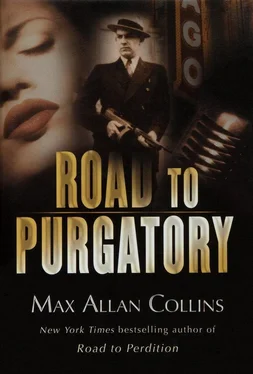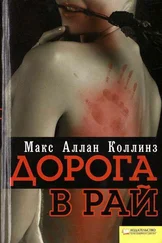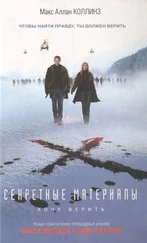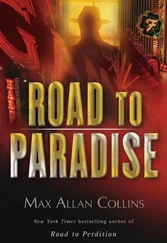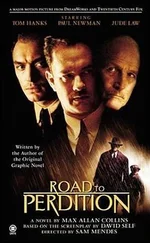Max Allan Collins
Road to Purgatory
FOR DANIEL OSTROFF—
who launched the O’Sullivans
on the Hollywood road
WE WHO WALK THE DEMON’S PATH ARE NO LONGER ORDINARY MEN.
Kazuo Koike
WE’RE THE BATTLING BASTARDS OF BATAAN; NO MOMMA, NO POPPA, NO UNCLE SAM.
War correspondent Frank Hewlett
ONE IS LEFT WITH THE HORRIBLE FEELING THAT WAR SETTLES NOTHING; THAT TO WIN A WAR IS AS DISASTROUS AS TO LOSE ONE.
Agatha Christie
Bataan, the Philippines
March 1942
Even before the banzai attack, the young corporal Captain Arthur Wermuth had taken under his wing, some months ago, was already something of a legend on the peninsula.
Michael Satariano of DeKalb, Illinois, had seemed so slight, such a child at twenty, that Wermuth had given in to protective feelings about his charge, which were not wise in war. The boy was about five ten and slender, his tanned skin due not to an Italian heritage but the tropical sun that they all endured; his hair and eyes were dark brown, his face blessed with such an angelic innocence that the Filipino Scouts — who were so impressed with the lad’s exploits — had taken to calling him un Demonio Angelico .
Any affection the captain nurtured for the soft-spoken, taciturn lad — any fatherly concern he might harbor — was offset by the deadpan ferocity Satariano brought to combat. The boy’s battle-field commission reflected his bravery during the withdrawal from Luzon to Bataan; Satariano — his behavior emblematic of General MacArthur’s “stand and fight, fall back and dynamite” strategy — had waited until the last moment to dynamite a key bridge.
Cut off from the demolition experts of the engineers, Wermuth had dispatched the young man to do his best, and witnessed from a safe distance images he would never forget: the little yellow men in brown uniforms halfway across the rickety, rotting suspension bridge, and the kid firing into the pile of leafy-branch-camouflaged wooden boxes (red-stenciled: DYNAMITE — DUPONT), followed by a thundering plume of orange and white and gray, wires snapping, planks flying like knocked-out teeth, enemy soldiers tumbling, those still alive screaming, arms wind milling, as they fell the fifty feet into a patiently waiting riverbed.
And the boy turning to trot back and rejoin the Scouts with an expression as coldly bland as a chilled glass of milk.
Wermuth — a heavyset dark-haired man of thirty-three whose nondescript features and tiny twitchy mustache masked a grizzled combat veteran, his 1918-vintage tin helmet worn rakishly to one side — led the 57th Filipino Scouts, also known as the Snipers. The boy from Illinois was the only other white in the 57th, which was not unusual on Bataan, where the American forces numbered around five thousand to thirty-some thousand Filipinos, about half of which were the well-trained Scouts, the rest rather hopeless untrained native recruits.
A two-man sprinkling of khaki amid the coarse blue fatigues of the Filipinos, Wermuth and his young sidekick supervised the Snipers, their usual mission reflected by their name, Satariano the keenest shot of them all, captain included. Of late their duty had shifted, as General Wainwright had sent them out on patrol in the no-man’s land extending across the breadth of Bataan, scouting for signs of enemy build-up or imminent attack.
Twenty-five miles long, twenty miles across, the peninsula of Bataan jutted into Manila Bay like a mini-Florida, its tip pointing to the nearby looming island fortress of Corregidor, MacArthur’s HQ. Like twin spinal cords, two mountain ranges thick with jungle ran the peninsula’s length — between them lay a narrow valley crisscrossed by streams, ravines, and gullies... on either side, narrow coastal plains.
To Captain Wermuth, Bataan seemed a primitive sort of paradise in which to be fighting a modern war. The peninsula had its share of vividly glorious vistas — terraced rice fields, shimmering blue rivers, purple-peaked mountains — with civilization represented by the occasional village of thatched-roof nipa huts on stilts, dogs sharing the interior, pigs snoozing below. Boys chased chickens around and around just within the stone-wall periphery of such villages, a thigh-high barricade that wouldn’t keep a monkey out, much less the Japanese.
The jungles through which Wermuth, his sidekick Satariano, and their Scouts patrolled were snarls of palms, ferns, snake-like vines, and brush, a steamy hot hell. But just when the rugged terrain was at its most unforgiving — the temperature and exhaustion and mosquitoes and hunger combining to test the limits of endurance — a cool stream could rush down out of the mountains, to make it up to you.
Such had been the case that muggy afternoon, and the captain instructed his dozen Scouts to catch some chow and some rest. They would take off their tin helmets and splash the refreshing stuff on their faces and arms and hands and drink as greedily as a desert wayfarer who discovered a mirage really was an oasis. Even as they ate, however, many of the Scouts at least half-reclined, their eyes on the trees...
...not enjoying the glimmering green tropical beauty, but rather keeping an eye out for the glint of a rifle barrel amid high branches. As snipers themselves, they had a practical paranoia.
These Filipinos had been in their nation’s army for years, virtually signing up for life. Well-equipped with M-1 rifles, gas masks, web gear, bed rolls, and fine leather shoes, they could all muster at least a reasonable English dialect. Their worst sin, Wermuth knew, was a lack of initiative — in their culture, a guy couldn’t get in trouble for something he didn’t do. But with guidance, they could deliver merry hell on the enemy.
The Scouts were the best soldiers on the peninsula, American and Japanese included.
“Fellas,” the captain said, as his men lolled back luxuriously, savoring their three-eighths ration of rice beside the babbling brook, “we should be within spitting distance of the perimeter defense line.”
With a nod toward the trees, Satariano said, “Light machine gun position up that way.”
“The corporal and me’ll just drop by and say hello,” the captain said. He pointed. “Take your latrine off thataway... Heading out, we’ll try ’n’ remember not to walk there.”
This was an old joke among these warriors; nonetheless, the Scouts all laughed at the thought of stepping in their own mess. They were easily amused.
Wermuth and his corporal stayed together, almost side by side, as they moved through the jungle, Satariano hacking with a Filipino bolo; despite the blade, big branches and vines slapped the faces of the men for their rude intrusion. Staying close was a necessity in such thick underbrush, visibility often less than a yard. The occasional scurry of animals was probably small monkeys and lizards, who moved as if word had spread that the rations-shy GIs were eating them; the jungles were said to be home to wild pigs, pheasant and quail, too, but you couldn’t prove that by Wermuth or just about any soldier on the peninsula. They did find the occasional water buffalo in a mud hole, though the flavor was about the same whether you ate the beast or the mud.
Satariano wore a shoulder-slung Thompson submachine gun with a black asbestos protective glove on his left hand; the weapon was like something out of a Cagney picture, the spare pair of round ammo drums like mini-canteens on his webbing belt. The kid had a sidearm as well, a .45 army Colt that had been his father’s in the last war. Neither soldier carried grenades, because such a high percentage were duds, and depending on them was more dangerous than not having them. Wermuth, like his Scouts, carried an M-1, and his sidearm was also a .45 Colt, dating to the “Great” War.
Читать дальше
